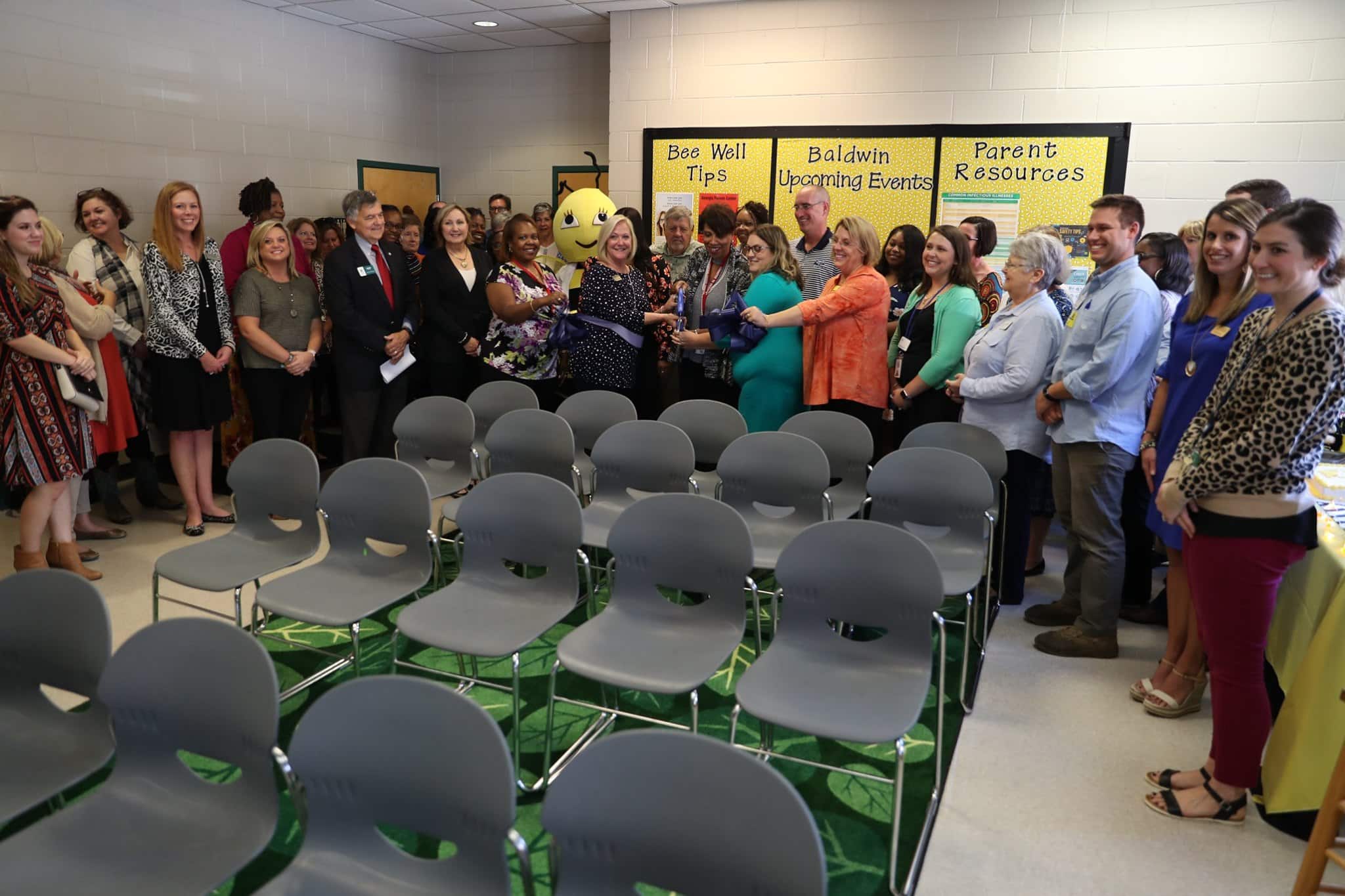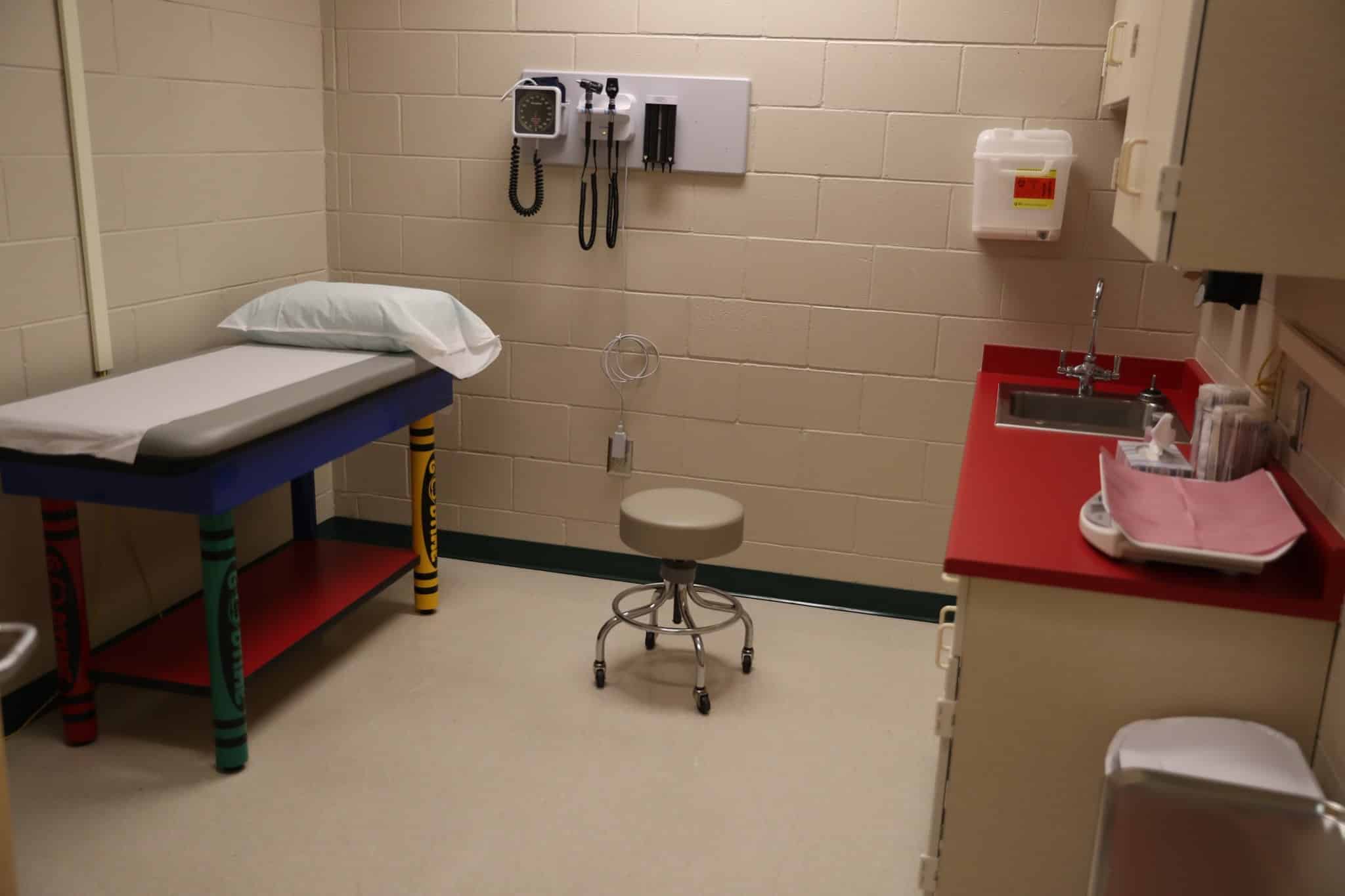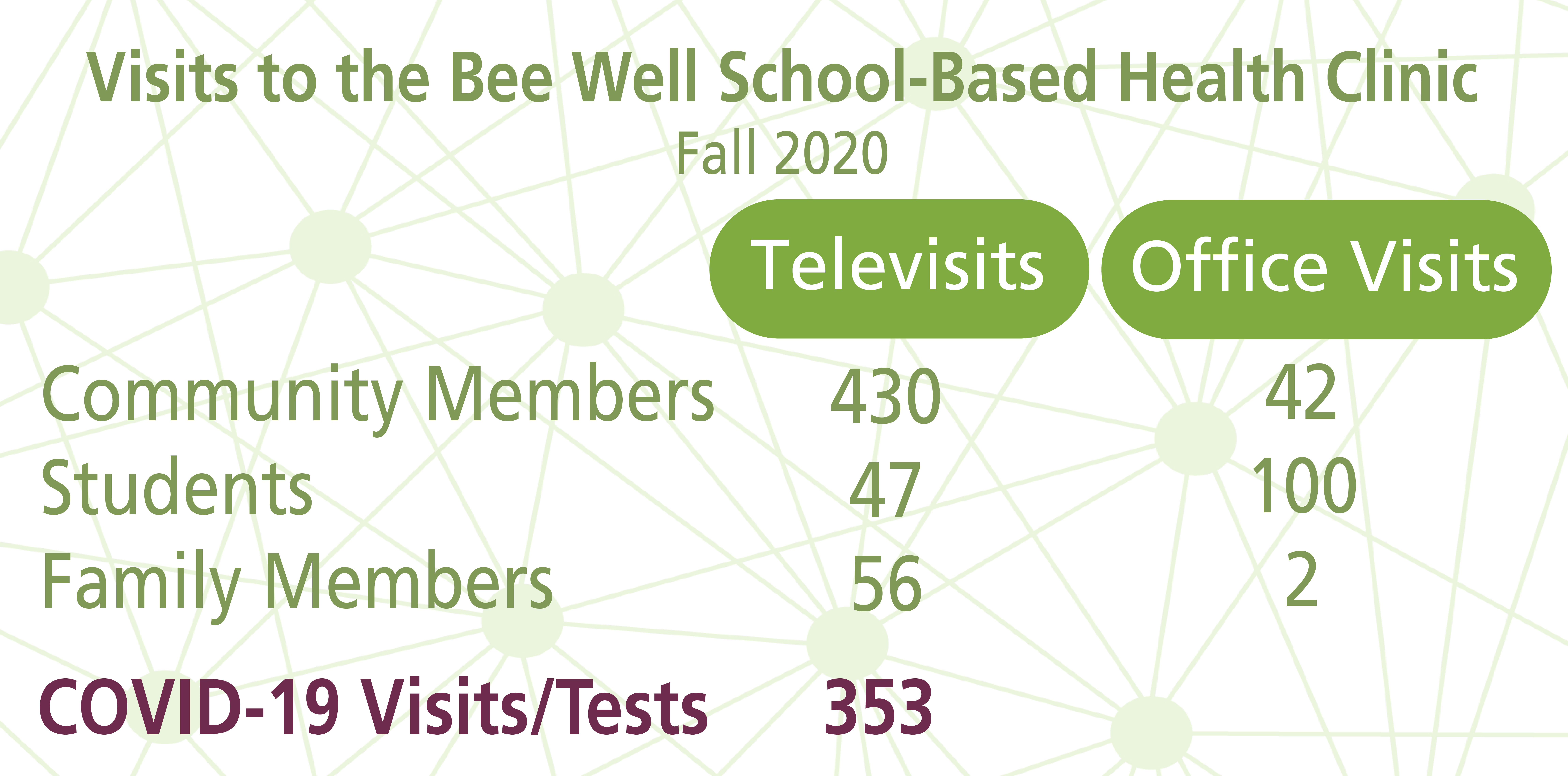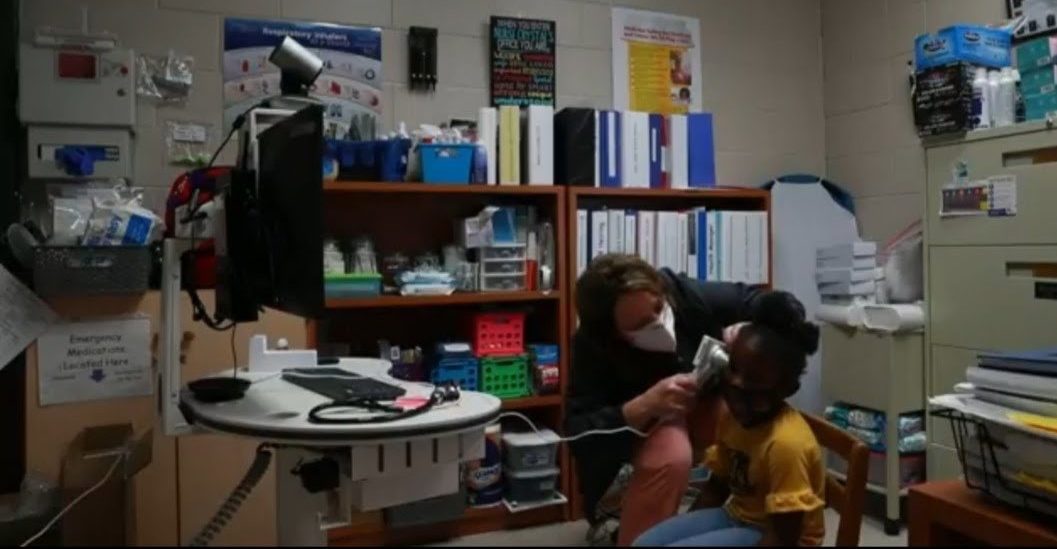School-Based Health Clinic Opens Doors for Families in Baldwin County
Print This Post
The grand opening of the Bee Well School-Based Health Clinic was held in October 2019.
In early 2019, a third grader at Midway Hills Academy told his teacher he “couldn’t see sometimes.” He went to a vision screening at a health fair provided by the Lions Club. He was referred to an eye doctor, who in turn referred him to a specialist for possible glaucoma and optic nerve damage.
While this student ultimately received the care he needed, others were not. That’s because in Baldwin County, where 29.4% of children live in poverty, families often don’t have access to quality health care or insurance, particularly for preventative care.
All that changed when the Bee Well School-Based Health Clinic opened at the Early Care Center in Milledgeville in October 2019. The facility serves all students and their families, as well as employees of the school system.
“It’s a life-changing opportunity for our children and families,” said Janet Cavin, Baldwin County Family Connection coordinator. “Before, families that got a preliminary eye exam and doctor referral may not follow through. Now all that is taken care of through the Bee Well Clinic, because of the relationships we have with eye doctors, dentists, and mental health professionals in town. It’s taking out that middle step and enabling families to have better access more quickly.”
The clinic is the result of a partnership with Communities in Schools of Milledgeville/Baldwin County (CIS), Baldwin County School District, Georgia College, and Community Health Care Systems Inc.
“This is a prime example of what can happen in a community with a strong Family Connection Collaborative. It takes everybody working together to make it happen,” said Cavin, who helped secure $550,000 through the Wraparound Baldwin Federal Grant. “It’s been a dream realized in a short time because of the community partner work that wasn’t only ready for it—they were also prepared to tackle the challenges to make it happen.”

The Bee Well Clinic has led to increased successful and timely wellness visits and vaccines required for school enrollment and extracurricular activities. Students travel via bus from their school to the clinic, ensuring minimal class time is missed.
“Communication between the on-site clinic and the family advocates and school nurse is seamless, so the parents are relieved of the pressure to remember the many things they need to do to complete their child’s registration,” said Courtney Bentley, CIS program coordinator.
As a Federally Qualified Health Center, the Bee Well Clinic offers parents an income-based application that determines their payment responsibility, alleviating some of the financial burden that can accompany health care.
“We have a lot of sick kids. I didn’t realize how many,” said Cavin, who noted that the clinic caters to children with chronic needs. “It helps ensure they’re not only getting medication, but also the correct dose. A child whose medication protocol changes goes to the clinic and joins a telehealth call with their parent and pediatrician, figuring it out in a few minutes instead of half a day.”
The clinic was initially open for two half days each week, but it quickly became evident that the need was great—so within three months, it opened four full days each week. “That was a goal we had in mind for the end of the five-year grant period, so we were pleasantly surprised to meet that goal at the beginning of our second year,” said Bentley.
Baldwin was a hotspot for COVID-19 in 2020, further increasing the need for the clinic—especially as the county is considered a health care professional shortage area by the Health Resource and Services Administration.
“There was a fear surrounding COVID-19 that resulted in some families neglecting maintenance health care such as well checks, annual vaccines, and preventative care for chronic illnesses,” said Bentley. “We worked with the school district to get information to families that the Bee Well Clinic was available to help alleviate this burden.

Pre-pandemic, the facility’s grand opening included several open house events in an effort to increase visibility with not only families but also business, political, and faith-based leaders. “If I’m an employer and one of my employee’s kids gets sick, I could say, ‘Are you taking them to the school clinic?’ Because the parent may not know,” said Cavin.
While strides are being made to improve physical health in Baldwin County, Cavin said addressing food insecurity, which impacts 20.9% of residents, is the top priority. The Collaborative is working with the school system on a pilot program that allows families to shop for food with points they can earn and share.
“As the pandemic deepened, one of our communities was about to lose assistance of a food bank distribution program,” said Damian Francis, director of Live Healthy Baldwin. “Through working with Family Connection and other partners, we were able to save this much-needed resource.”
Live Healthy Baldwin is focused on engaging multiple stakeholders into a think tank and action team to address community needs while assessing the level of blight and physical food environment mapping to find opportunities for intervention.
“We believe this work should be driven by community champions and center around a nucleus to ensure sustainability—which may be a community garden or community learning center,” said Francis. While programming at the community center in Milledgeville was halted as a result of the pandemic, families have continued to utilize the community garden, walking trail, and basketball court.

The Collaborative is also working with partners to address mental health needs of the county’s children and their families who often aren’t able to consistently receive help due to lack of reliable transportation, lack of mental health professionals in the area, and financial constraints.
“A huge part of mental health care is consistency and access,” said Bentley. “Our superintendent, Noris Price, is a champion for removing barriers for students and their families—and this is no different.”
The answer came in the form of telehealth, which is supported through the Wraparound Baldwin Federal Grant and the Reaching Rural Communities Grant. State-of-the-art telehealth equipment was purchased for the clinic and all seven schools in the district.
“The school nurse and counseling staff still serve as the first line of defense for students, but if they see a need beyond their scope of expertise, they’re now able to contact the Bee Well Clinic to arrange physical or mental health consults,” said Bentley.
Baldwin was one of six counties in Georgia to receive a startup grant from Bright from the Start: Department of Early Care and Learning to help build a trauma-informed school system. Part of teacher preparation for the upcoming school year will include trauma-informed training.
“Our county was chosen because we have the ability to bring partners together and initiate systemic change,” said Cavin. The Collaborative is bringing the school system, health department, and other partners together to examine what it means to be a trauma-informed community.
“We still want to be a part of what’s happening with the clinic, but our role has morphed into the next phase of what this looks like,” said Cavin. “That’s one of the central parts of who we are as a Family Connection Collaborative in my mind—our role, if we’re doing our job, will diminish over time as others take ownership. For us, it means letting go of the initial project or program and taking the next step—or helping others take the next step.”
Contact:
Krystin Dean
GaFCP Communications Specialist
krystin@gafcp.org
Follow us on Twitter: @gafcpnews
Connect with us on Facebook.
Georgia Family Connection Partnership (GaFCP) is a public-private partnership created by the State of Georgia and investors from the private sector to assist communities in addressing the serious challenges facing children and families. GaFCP also serves as a resource to state agencies across Georgia that work to improve the conditions of children and families. Georgia KIDS COUNT provides policymakers and citizens with current data they need to make informed decisions regarding priorities, services, and resources that impact Georgia’s children, youth, families, and communities.
